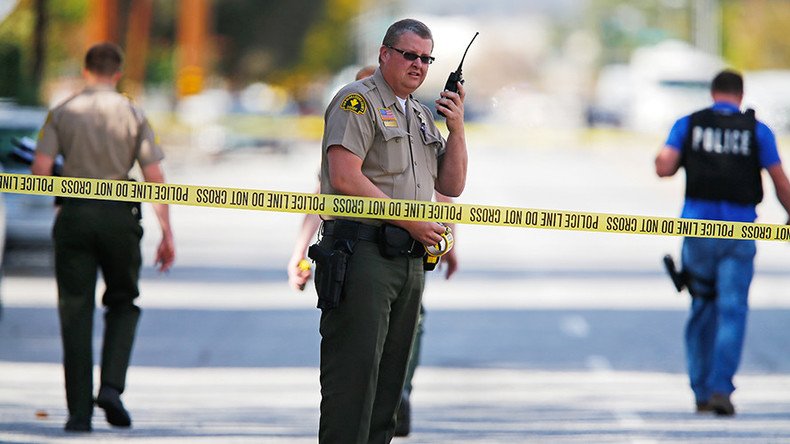‘Guardians, not warriors’: Police leaders seek less deadly training

This week, two law enforcement training sessions took place in Washington state and Scotland, perhaps atypical of those which would usually happen. Police leaders previewed techniques focusing less on force, which they hope will be welcomed in the future.
The Washington State Criminal Justice Training Commission, located about 11 miles outside Seattle, trains “guardians of democracy,” rather than “warriors.” Such a stark contrast of potential policing profiles is more often seen in online memes, but for executive director Sue Rahr, it’s an important distinction.
Police State USA - When did this become this? pic.twitter.com/lFMqfxh1Oo
— Peace Gold Love (@dailypaul) May 16, 2015“If your overarching identity is ‘I’m a warrior,’ then you will approach every situation like you must conquer and win,” Rahr told the Washington Post. “You may have a conflict where it is necessary for an officer to puff up and quickly take control. But in most situations, it’s better if officers know how to de-escalate, calm things down, slow down the action.”
In April, Rahr co-wrote the Harvard Kennedy School-published report, “From Warriors to Guardians: Recommitting American Police Culture to Democratic Ideals.” She sits on President Barack Obama’s Task Force on 21st Century Policing, formed by executive order in late 2014. But her reform-minded approach isn’t without its detractors.
Mentally ill 16 times more likely to be killed by cops – study https://t.co/sQY27PIixspic.twitter.com/F2PcDfxIHy
— RT America (@RT_America) December 11, 2015A fifth of her commission’s staff quit or were fired within the first year, and Rahr has only been at this for three. She also admits to the Post that some two-thirds of the state of Washington’s 285 police chiefs “think this is just dangerous,” or are cautious about her trainings.
Nonetheless, Rahr’s ideas, such as changing the standard “Ask, Tell, Make” escalatory protocol to “Listen and Explain with Equity and Dignity” LEED protocol have an influence. The think tank Police Executive Research Forum has borrowed from her expertise, and its executive director, Chuck Wexler, is ready to continue the general effort.
“We must do better,” Wexler told The New York Times during a recent trip to Glasgow, Scotland for a leadership seminar.
“It hit me like a ton of bricks,” Wexler said, explaining what inspired him to bring other police heads with him to a country where 98 percent of its cops are unarmed. Wexler had traveled there in 2014 when he noticed no gun on a constabulary’s hip.
DETAILS: 4 of the bikers killed with by bullets only used by Waco Cops https://t.co/8w77EIucknpic.twitter.com/631QakiYAV
— RT America (@RT_America) December 11, 2015Police in America aren’t going to be disarmed any time soon, but the fresh perspective Wexler and others received from Scotland’s officers informed their thinking on matters of de-escalation, even when a criminal is holding a knife as is more common than a gun there.
Still, even after accounting for the need to become closer to the community one polices, cultural differences dictate much of how police think and act. New York Police Department Assistant Chief Theresa Shortell anticipates any new direction on her part to teach de-escalation back home won’t be easy.
“If I go back and I do say, ‘back up,’ they’re going to say, ‘What happened to Terry Shortell?’ They are,” Shortell told NYT.
Back in Washington state, Rahr’s commission has trained just 20 percent of the state’s 10,000 local officers in three years, prompting her to tell the Post, “It’s going to take a generation to establish a new culture.”











